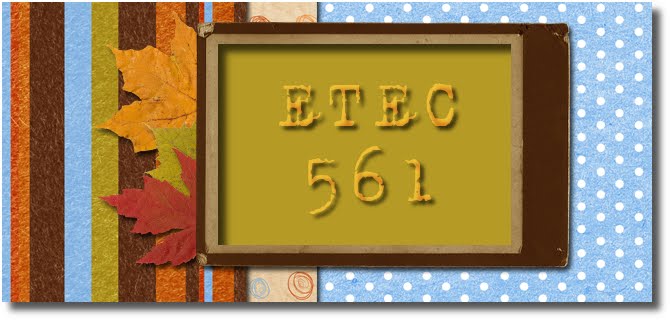K12
This is the level of education where we will most likely see the slowest change when it comes to technology and instruction. Where the textbook points out several other advances in technology that were predicted to revolutionize education and fell short, the Internet has some important features that those other technologies did not. First, it is collaborative and allows students control over their own learning that they have never had before. No previous technologies have provided the wealth of information and different mediums (sound, video, text, etc) like the Internet. For these reasons, I don’t see it fizzling out like other technologies. However, that doesn’t mean that educators will use it to it’s full capabilities for some time now. Unfortunately in K12 education, we are using the Internet to make fancier versions of the same old pencil and paper products.
I was fortunate enough to attend an Alan November workshop this summer, and he had much to say on the future of technology in education. He stresses that we need to be using technology to teach in ways we’ve never imagined before. Here a video that gives you a brief idea of his philosophy:
Find more videos like this on NL Connect
My hope is that eventually the Internet will be used for more online courses for college level, at-risk, and rural high school students. Students will be able to connect to experts in different fields or other peers with similar interests. I also see the Internet being able to provide simulations for students that allow them to apply real world thinking and problem solving in science, mathematics, history, etc.
Right now I see two major obstacles: lack of resources and teacher training. Until we are able to equip schools with a computer for every student, this type of learning with technology will be hard to achieve. Also, districts are not adequately training teachers to think about technology and instruction in new, innovative ways like November stresses.
Higher Education
Fortunately, higher education seems to embrace advances in technology must faster than K12. More and more online degrees will be available in the next few years. There will be many more colleges like Phoenix, which is all online. In fact, I’ve never set foot on TAMU Commerce grounds, and I’m about to receive a master’s degree from the university. I also believe that we will see more and more collaborative learning via that Internet between students in online and traditional classes. Just like in K12, I see universities embracing online simulations to teach real world problem solving when appropriate.
Adult Education
Unknowingly, adult education has embraced Internet instruction more than another other field. Think of how many adults have used video tutorials to learn new skills. Free podcasts and webinars are available all over the web on a variety of subjects. Anytime adults want to learn something new or conduct research, we head straight for the Internet. As more people, like my 60 year old mother, become comfortable with the Internet more and more webinars, podcasts, tutorial videos, and online courses will become available.

No comments:
Post a Comment